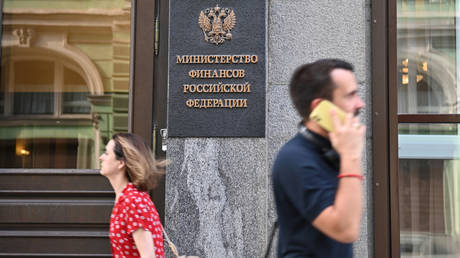SPIEF 2024: Russia hints at change in cryptocurrency stance
The Russian Finance Ministry has expressed backing for the use of cryptocurrency in international trade, contending that the US dollar and euro have diminished in credibility.. source:TROIB RTS

Russia demonstrates a readiness to embrace alternative methods for international payments, including potential use of cryptocurrencies, as indicated by Deputy Finance Minister Ivan Chebeskov. During his remarks at the St. Petersburg International Economic Forum, he noted a substantial decrease in global confidence towards the US dollar and the euro.
At a panel focusing on industrial crypto mining, Chebeskov mentioned that enterprises are increasingly looking for new options for executing cross-border payments.
“We always support tools and channels providing alternative ways of settlements… digital currencies are seen as one of them,” Chebeskov stated, emphasizing the necessity for thorough regulatory measures on cryptocurrency mining and utilization.
He revealed ongoing collaborative efforts among the Finance Ministry, the Bank of Russia, the State Duma, and law enforcement to establish a regulatory framework for cryptocurrency payments. Further, Chebeskov discussed a draft bill aimed at regulating cryptocurrency exports, the details of which will reflect the legislative decisions made by the government.
Back in December, the possibility of allowing crypto miners to export their currency akin to commodity exports, like natural gas, was put forth by Chebeskov.
This development marks a significant pivot from earlier perspectives held by the ministry concerning digital currencies. Historically, the rise of cryptocurrencies has been met with skepticism in Russia, with worries about their potential connection to illegal activities, including money laundering. In 2016, the ministry even proposed severe penalties for those involved in cryptocurrency trading and mining.
The push towards reducing reliance on the dollar has gained momentum, particularly after Russia faced exclusions from the Western financial system following events in February 2022 related to Ukraine. This scenario prompted numerous financial analysts and several Western officials to speculate about accelerated de-dollarization due to actions like the freezing and potential seizure of Russian foreign assets.
Earlier in the month, President Vladimir Putin criticized the United States for deploying the dollar as a "tool of combat," a practice he claimed diminishes trust in the currency globally. Putin also remarked that while Russia hadn’t initially pursued de-dollarization, it now sees it as an "inevitable" outcome.
The move away from the dollar and euro has received backing within the BRICS economic group, which is moving toward using their own national currencies more frequently in dealings and is exploring the establishment of a blockchain-based payment system, according to Yury Ushakov, a top foreign policy advisor to Putin.
Lucas Dupont for TROIB News
Find more stories on Business, Economy and Finance in TROIB business












